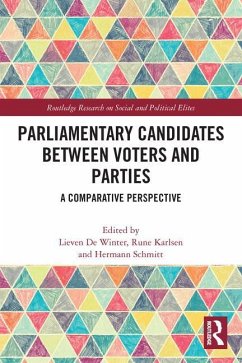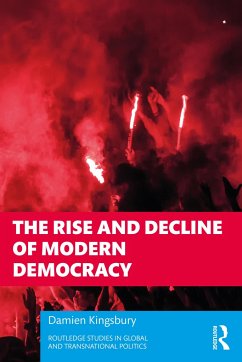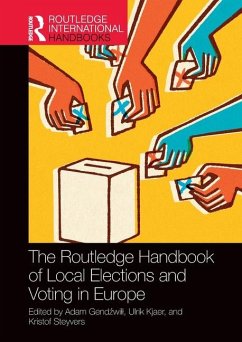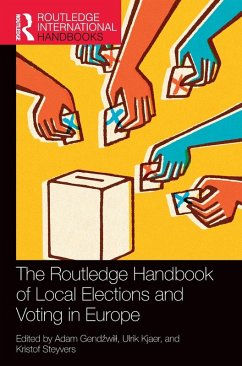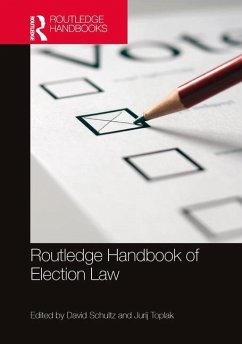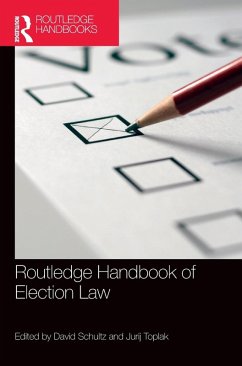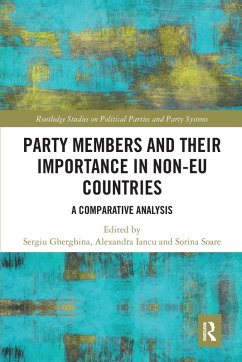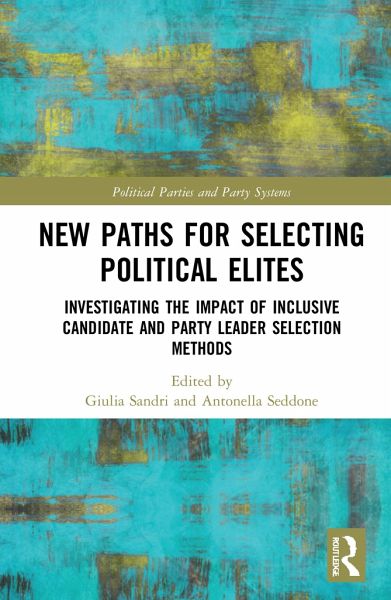
New Paths for Selecting Political Elites
Investigating the impact of inclusive Candidate and Party Leader Selection Methods
Herausgegeben: Sandri, Giulia; Seddone, Antonella
Versandkostenfrei!
Versandfertig in 6-10 Tagen
45,99 €
inkl. MwSt.

PAYBACK Punkte
23 °P sammeln!
This book provides a cross-country study of the consequences of the expansion of intra-party democracy, the trend towards more inclusive methods of selection for party candidates and leaders, and the impact of these on political elites in terms of sociopolitical profile and patterns of careers.It explores the link between political organizations and political elites, by studying the role of parties in parliamentary and political selection and its impact on the political leadership appointed. Putting an emphasis on primary elections, it analyses the party elites that emerge from those selection...
This book provides a cross-country study of the consequences of the expansion of intra-party democracy, the trend towards more inclusive methods of selection for party candidates and leaders, and the impact of these on political elites in terms of sociopolitical profile and patterns of careers.
It explores the link between political organizations and political elites, by studying the role of parties in parliamentary and political selection and its impact on the political leadership appointed. Putting an emphasis on primary elections, it analyses the party elites that emerge from those selection processes and those democratized organizational settings. It focuses not only on the analysis of the processes through which party elites are selected and the consequences at the level of the party but also at the level of party elites themselves, i.e. what impact party primaries have on the characteristics parties' candidates and leaders. The book offers a theoretical, comparative, and empirical account of the internal electoral processes of parties and their impact on political recruitment.
This book will be of key interest to scholars and students of political elites, political parties and party systems, electoral politics, democracy, populism, and leadership, and more broadly to comparative politics.
It explores the link between political organizations and political elites, by studying the role of parties in parliamentary and political selection and its impact on the political leadership appointed. Putting an emphasis on primary elections, it analyses the party elites that emerge from those selection processes and those democratized organizational settings. It focuses not only on the analysis of the processes through which party elites are selected and the consequences at the level of the party but also at the level of party elites themselves, i.e. what impact party primaries have on the characteristics parties' candidates and leaders. The book offers a theoretical, comparative, and empirical account of the internal electoral processes of parties and their impact on political recruitment.
This book will be of key interest to scholars and students of political elites, political parties and party systems, electoral politics, democracy, populism, and leadership, and more broadly to comparative politics.





